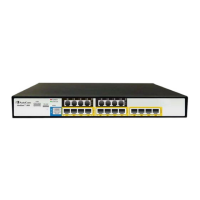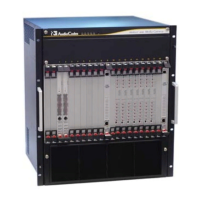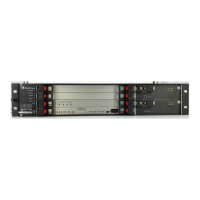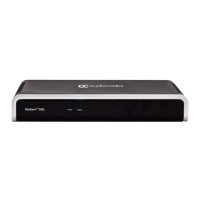SIP User's Manual 480 Document #: LTRT-12804
Mediant 800 MSBG
8.4 SBC Application
This section provides a detailed description of the device's SBC application.
This section includes the following subsections:
Overview of the SBC application (see ''Overview'' on page 480)
SIP networking definition
s (see ''SIP Network Definitions'' on page 482)
SIP dialog-ini
tiation process (see ''SIP Dialog Initiation Process'' on page 482)
User regi
stration and the device's database (see ''User Registration and Internal
Database'' on page 490)
Media ha
ndling (see ''SBC Media Handling'' on page 493)
SBC Dialo
g Admission Control (see ''SIP Dialog Admission Control'' on page 502)
Han
dling SIP 3xx Redirect Responses (see ''Handling SIP 3xx Redirect Responses''
on page 503)
SIP Diversion
and History-Info headers interworking (see ''Interworking SIP Diversion
and History-Info Headers'' on page 505)
SBC config
uration example (see SBC Configuration Example on page 546
8.4.1 Overview
The SBC application supports up to 150 SBC sessions and provides the following main
features:
NAT traversal (see ''NAT Traversal'' on page 481)
VoIP firewall and security for sig
naling and media (see ''VoIP Firewall'' on page 481)
Topolo
gy hiding (see ''Topology Hiding'' on page 481)
SIP normalization (see ''SI
P Normalization'' on page 482)
Survivability (see ''S
urvivability'' on page 482)
Routin
g (see ''SIP Network Definitions'' on page 482 a
nd ''SIP Dialog Initiation
Process'' on page 482):
• IP-to-IP routing translations of SIP, UDP, TCP, TLS (when extensive transcoding
is not required)
• Load balancing and redundancy of SIP servers
• Routing according to Request-URI\Specific IP address\Proxy\FQDN
• Alternative routing
• Routing between different Layer-3 networks (e.g., LAN and WAN)
Load balancing\redundancy of SIP servers
Internet Telephony Service Providers (ITSP) accounts
SIP URI user and host name manipulations (see ''SIP Dialog Initiation Process'' on
page 482)
Cod
er Transcoding (see ''SBC Media Handling'' on page 493)

